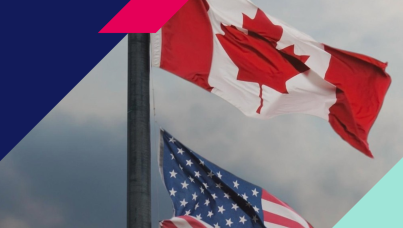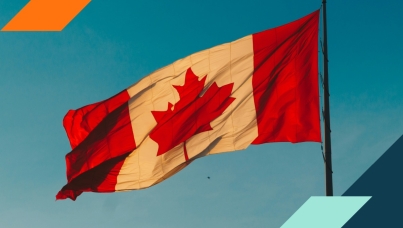MORE THAN EIGHT-IN-TEN (86%) CANADIANS FEEL GOVERNMENT NEEDS TO CONTINUE WITH PRE-SEPTEMBER 11TH AGENDA
Toronto, ONTARIO- With the upcoming federal Budget, a new Ipsos-Reid/Globe and Mail/CTV poll released today indicates that more than eight-in-ten (86%) Canadians believe that the government should continue with it's pre-September 11th issues agenda, including items such as improving the environment, encouraging economic development and improving the living conditions of aboriginal Canadians.
At the same time, Canadians also appear to be supportive of increased expenditures on security. In fact, an equivalent proportion (83%), say that increased security at Canadian airports and on flights should be paid for by the government.
However, given the opportunity to choose directly between more spending on health care or providing more money for increased security measures such as improving Canada's borders (16%), eight-in-ten (82%) opt for increased health care spending.
These are the findings of an Ipsos-Reid/Globe and Mail/CTV poll conducted between November 27th and November 29th, 2001. The poll is based on a randomly selected sample of 1,000 adult Canadians. With a sample of this size, the results are considered accurate to within 177 3.1 percentage points, 19 times out of 20, of what they would have been had the entire adult Canadian population been polled. The margin of error will be larger within regions and for other sub-groupings of the survey population. These data were statistically weighted to ensure the sample's regional and age/sex composition reflects that of the actual Canadian population according to the 1996 Census data.
More than eight-in-ten (86%) Canadians believe that the government should continue with it's pre-September 11th agenda, such as improving the environment, including issues such as encouraging economic development and improving the living conditions of aboriginal Canadians. In fact, one-half (50%) strongly agree that priorities prior to September 11th should be maintained. It is notable that almost eight-in-ten of all demographic groups express this view.
- Regionally, this view is strongest among those in Atlantic Canada (89%), closely followed by residents of Quebec (87%), Ontario (87%), British Columbia (87%) and Alberta (84%). Residents in the Prairie provinces of Saskatchewan and Manitoba (79%) are less likely to hold this view.
- Canadians in the lowest household income group (93%) are more likely than those in the middle (86%) or highest household income group (84%) to agree with this view of spending priorities.
- Women (89%) are more likely than men (84%) to express this view.
At the same time, Canadians (83%) say that increased security at Canadian airports and on flights should be paid for by the government. Once again, almost eight-in-ten of all demographic groups agree with this view.
- Regionally, Canadians in Atlantic Canada (87%) are more likely than those in other regions to hold this view. Followed by residents of Ontario (85%) and those on the Prairies - Alberta (83%), Saskatchewan/Manitoba (83%). British Columbians (79%) and Quebecers (79%) are less likely to say government should pay for increased airport and airline security.
- Younger (88%) Canadians are more likely than both their middle aged (80%) and older (80%) counter parts to agree with this idea.
- Women (86%) are more likely than men (80%) to express agreement this view.
- Canadians from the middle household income bracket (85%) are slightly more likely to agree with this view than those in the highest (82%) and the lowest (80%) household income groups.
However, while increased security expenditures is may be viewed as part of the new agenda, when given the opportunity to choose directly between more spending on health care (82%) or on providing more money for increased security measures such as improving Canada's borders (16%), eight-in-ten opt for health care spending.
- Residents of Quebec (86%) are slightly more likely to opt for increased health care spending over increased expenditures on security measures than Canadians in other regions. Followed by residents of Alberta (83%), and Ontario (82%). British Columbians (77%), residents of Saskatchewan/Manitoba (77%) and Atlantic Canada (77%) are less likely to opt for increased healthcare spending.
- Canadians from the middle household income (84%) and the lowest household income (83%) group are more likely to choose health care spending over spending on security measures than those in the highest household income group (79%).
- Women (84% versus 80% of men) are more likely to make the choice of increased heath care spending versus increased security spending.
To view the complete release and tables, please download the PDF file.
-30-John Wright
For more information on this news release, please contact:
John Wright
Senior Vice-President
Public Affairs
Ipsos-Reid
(416) 324-2900



